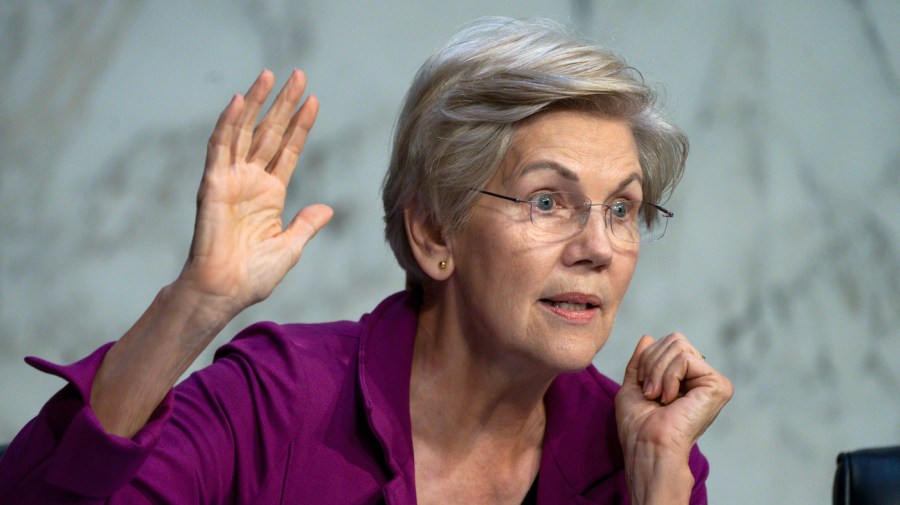Two Democratic senators are demanding answers from a pro-business lobbying giant regarding its “outrageous and unwarranted” lawsuit against a consumer watchdog agency.
In a Sunday evening letter to the U.S. Chamber of Commerce President Suzanne Clark shared exclusively with The Hill, Sens. Elizabeth Warren (D-Mass.) and Sheldon Whitehouse (D-R.I.) questioned the Chamber’s decision to sue the Consumer Financial Protection Bureau (CFPB) last month over a new rule to cap credit card late fees at $8.
The $8 cap, which only applies to large card issuers with more than 1 million open accounts, is 75 percent less than the current average late fee of $32. The CFPB estimates the rule would save consumers more than $10 billion each year.
“We are deeply concerned by the Chamber’s lawsuit to prevent the CFPB’s rule from taking effect,” Warren and Whitehouse wrote, adding the “decision to abuse the legal system to overturn a CFPB rule that would drastically improve the lives of millions of Americans is not consistent” with the Chamber’s stated goal to give individuals and businesses the opportunity to “build a better future for themselves.”
Opponents including the Chamber say the rule exceeds the CFPB’s authority and benefits a small cohort of late payers at the expense of all cardholders. They also say the late fee cap will lead to more late payments and debt while reducing credit scores and access to credit.
“The fact is this rule will punish responsible consumers who pay their credit card bills on time by forcing them to subsidize the costs of those who do not. Not only is it bad public policy, the regulation is contrary to the relevant law governing late fees. That is why the Chamber has sued the CFPB and is supporting congressional action to stop this misguided rule from harming responsible credit card users,” Neil Bradley, executive vice president and chief policy officer at the Chamber, told The Hill.
The Chamber filed the lawsuit against the CFPB in the U.S. District Court for the Northern District of Texas, which is perceived to be more sympathetic to lawsuits challenging Biden administration policies. The American Bankers Association (ABA), Consumer Bankers Association (CBA), Fort Worth Chamber of Commerce, Longview Chamber of Commerce and Texas Association of Business are also plaintiffs.
The skirmish is the latest battle in the Biden administration’s war against “junk fees,” unexpected charges or hidden fees that critics say can quickly add up and obscure the real cost of goods and services.
President Biden touted his administration’s efforts to curb junk fees during his State of the Union address last month, which took place the same day the CFPB filed its lawsuit challenging the credit card late fee cap.
“I’m also getting rid of junk fees, those hidden fees added at the end of your bills without your knowledge,” Biden said during his speech. “The banks and credit card companies don’t like it.”
Warren and Whitehouse gave the Chamber until April 29 to respond to a series of questions including what preceded the decision to sue the CFPB, whether it received input from members before filing the lawsuit and why they filed the lawsuit in the Northern District of Texas, where just one of the plaintiffs resides.
“The Chamber owes the American public an explanation for its opposition to this rule and its defense of deeply exploitative late fee practices that harms consumers,” the lawmakers wrote.
